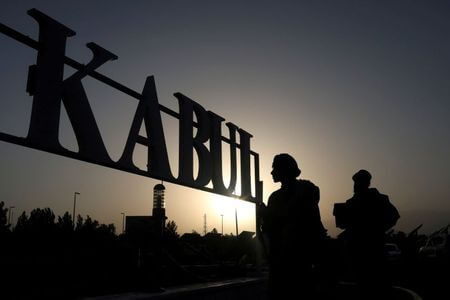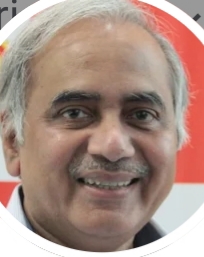
Lessons From Kabul Fiasco

The apex leadership of the Taliban which claims control over Kabul had deferred its ceremonial declaration of the launch of its regime on the twentieth anniversary of the 9/11 terror attack on America. No one can be more naïve than the White House if it decides to consider this decision by the Taliban as an act of remorse. But then, the White House has already shot itself in the foot many times. Therefore, the recent statement by the US expressing displeasure over the Taliban’s ruling team is laughable, to say the least. The Taliban’s ‘cabinet’, if one may call it so, consists of more than a dozen mullahs and half a dozen individuals who have been designated as ‘sanctioned terrorists”. If Joe Biden expected the Taliban to include Buddhist monks and saints he should have put it all in the agreement at Doha. The best he can do now is to ask his security advisors to be prepared to ward off another 9/11.
Amidst the Afghan cauldron left to simmer by the US one ray of hope seems to be the acceptance of India’s stand at the meeting of Brazil-Russia-India-China-South Africa (BRICS) which is reflected in the Delhi Declaration, issued after a virtual summit. The BRICS leaders expressed concern at the emerging situation and the unpleasant developments in Afghanistan and have called upon the lead actors in Kabul for “refraining from violence and settling the situation by peaceful means”. It is doubtful if the Taliban leadership will heed to these suggestions. But it is important for them to pretend to be different from what they were twenty years ago. Given the pressures and pulls within the Taliban it is rather impossible for them to turn a new leaf and become the “good Taliban”.
The strongly worded joint statement of the BRICS meet had come two days after the Taliban announced the provisional regime in Kabul under the leadership of Mohammad Hasan Akhund prominently including terrorists sanctioned by the UN Security Council. The regime also consists of the older leadership which was ousted by the US twenty years ago and the brain behind the dreaded Haqqani Network, Sirajuddin Haqqani. This is despite the claim by the Taliban that they would form an inclusive government.
Among the series of happenings in Kabul at least some of the developments were not surprising to say the least. The fact that the Afghan army, trained and equipped by the American and NATO forces, wilted in less than a week under the pressure and attack from Taliban fighters is not difficult to understand. It is difficult to believe that the president of America believed in what he claimed when he said that the Afghan army is strong enough to repel the attack by the Taliban. This raises another question about the intension of the Taliban when they agreed to be part of the high table in Doha. If the Taliban was ready to enter into a peaceful and amicable solution to the leadership issue, how come it mounted an attack even as the US army was literally rushing out of Kabul from as many avenues including the roof top of their embassy? Another highly troubling but not surprising aspect is that the US strategy has gone absolutely wrong in as much as the Taliban which they ousted from power twenty years back, occupying the seat of power in Kabul almost within hours of their quitting.
All these and many other disturbing realities of the situation bodes ill not only for the US but also for the region especially India which shares a border with Afghanistan through Pakistan Occupied Kashmir. Considering the seriousness of the emerging situation it becomes extremely important for New Delhi to put in place a strong counter terrorism mechanism to thwart terrorist attacks and also prevent any untoward misadventure by forces aiding and abating Taliban.
In this context the visit of the Central Intelligence Agency (CIA) Chief Bill Burns, the Secretary of the Security Council of Russia Gen Nikolay Patrushev and the earlier visit of the British MI6 Chief Richard Moore to India assumes great importance. Needless to say, the three global powers are deeply worried about the Afghan situation after the US hasty and unplanned US withdrawal facilitating the return of the Taliban. India did play a good host to the three global security experts who seem to have had no clue to the emerging situation in Kabul. They have every reason to be worried about two important developments besides the multiple acts of commission and omission in Kabul under the Taliban regime.
The first and the most important element is the extent of revival of terror activities which could bring a large part of the Western world, Europe and the region under its realm. While the Taliban would prefer to keep its terror activities on low key and/or limit it to covert operations the affiliated units and lone wolves would go uncontrolled hitting targets at random. With Haqqani Network chief as interior minister the terror groups will gain more strength and attack capabilities with the help of their bases in Pakistan. There is little doubt that India will be an easy target for these forces but the rest of the world will not be spared either.
Another aspect that worries the security and strategic community in the Western world is the greater extent of leverage that China has gained in Afghanistan. There are unconfirmed reports that China will soon begin to invest heavily in infrastructure projects in Afghanistan which will allow Beijing to loosen its purse strings and bail the Taliban out of the finance crunch.
It will not be very wrong to hazard a guess as to what these visiting security experts would have discussed with the Indian National Security Advisor Ajit Doval. One only hopes that New Delhi conveyed its displeasure over keeping India out of the Doha talks and not considering India’s concerns before much of the present mess began.
Both India and Russia have expressed more or less similar concerns about the return of Taliban to power in Kabul. Terrorism and drug trade are two aspects of the Taliban regime that will impose a heavy cost on taking security measures and managing the balance of power equation in the region.
In addition to the deteriorating security situation economic woes could be another area where India and Russia need to work together. The pandemic has dealt a severe blow to a number of emerging economies in the region. While the Quad’s progress is slow, it provides no economic base and networking to both India and Russia, which anyway is not part of the Quad. The Regional Comprehensive Economic Partnership (RCEP) as an institution seems to be greatly benefitting Beijing, leaving out three major economies, India, Japan and Russia. In addition, China has already occupied strategic space in the resource rich Afghanistan even as it has strong foothold in Pakistan through the China Pakistan Economic Corridor (CPEC). The China-Pakistan-Afghanistan axis may widen its area of influence and allow China to increase its hold over the entry points in the Indian Ocean and the choke points in the Indo-Pacific.
New Delhi will have to work with the regional powers on the one hand and at the same time increase its interaction with the Western democracies on the other hand. But more importantly, New Delhi should remember that no country in the world will come to its rescue in the event of a terrorist attack or economic meltdown. When it comes to safeguarding national interests and fortifying our security apparatus, we may have more sympathisers, less friends and no allies.
***************
Disclaimer
The opinions expressed in this article are the author’s own and do not reflect the views of Chanakya Forum. All information provided in this article including timeliness, completeness, accuracy, suitability or validity of information referenced therein, is the sole responsibility of the author. www.chanakyaforum.com does not assume any responsibility for the same.
Chanakya Forum is now on . Click here to join our channel (@ChanakyaForum) and stay updated with the latest headlines and articles.
Important
We work round the clock to bring you the finest articles and updates from around the world. There is a team that works tirelessly to ensure that you have a seamless reading experience. But all this costs money. Please support us so that we keep doing what we do best. Happy Reading
Support Us





















POST COMMENTS (1)
सुनील कुमार नेगी